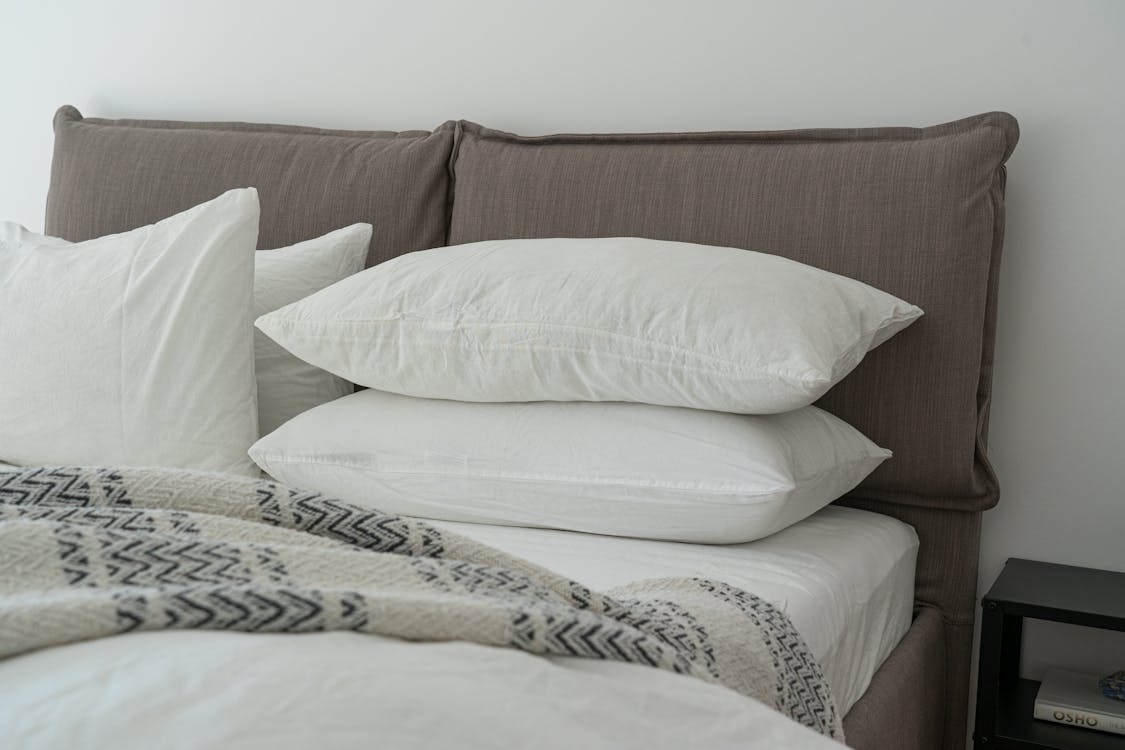
Selecting the right bed sheets is essential for achieving a comfortable and restful night’s sleep. With a wide variety of options available, understanding the key factors can help you make an informed decision. Here’s a comprehensive guide on how to choose the perfect bed sheets to enhance your sleep quality and comfort.
Understanding Bed Sheet Materials
The material of your bed sheets plays a significant role in comfort, breathability, and durability. Here are some popular options:
- Cotton: Known for its softness and breathability, cotton is the most common material for bed sheets. Egyptian cotton is considered the gold standard due to its long fibers, which create a softer and more durable fabric. Pima cotton, also known as Supima, offers similar qualities at a slightly lower price. Organic cotton is another great choice for those looking for eco-friendly options.
- Linen: Linen sheets are perfect for hot sleepers as they offer excellent breathability and moisture-wicking properties. Though slightly rougher in texture, linen becomes softer with each wash and is highly durable.
- Silk and Satin: These luxurious options provide a smooth and soft feel, ideal for those who prefer a sleek texture against their skin. However, they require more care and can be expensive.
- Microfiber and Polyester: Budget-friendly and easy to maintain, these synthetic materials are wrinkle-resistant but may lack the breathability and natural feel of cotton and linen.
Thread Count Explained
Thread count refers to the number of threads woven into one square inch of fabric. A higher thread count generally indicates a softer sheet, but this is not the only factor to consider. For most materials, a thread count between 200 and 400 is ideal. Anything higher may indicate a denser weave, which can make the sheets less breathable. It’s important to balance thread count with the quality of the material itself.
Weave Types and Their Effects
The weave of the fabric affects its texture and feel. Here are some common weave types:
- Percale: A plain weave known for its crisp and cool feel, making it ideal for summer or for those who prefer a lighter sheet.
- Sateen: This weave has a lustrous, silky finish and feels soft and smooth, perfect for creating a cozy, warm environment.
- Flannel: Flannel sheets are brushed on both sides, giving them a soft, fuzzy texture that’s perfect for cold climates.
Choosing the Right Size and Fit
To ensure your bed sheets fit properly, it’s crucial to match them to your mattress size and depth. Deep pocket sheets are necessary for thicker mattresses or if you use a mattress topper. Always check the dimensions on the packaging to avoid any surprises.
Considerations for Allergies and Sensitivities
If you have sensitive skin or allergies, hypoallergenic bed sheets made from natural fibers like organic cotton or bamboo are ideal. These materials are less likely to irritate the skin and are often treated with fewer chemicals during production.
Color and Pattern Choices
The color and pattern of your bed sheets can influence the overall aesthetic of your bedroom. Light, neutral colors create a calming environment, while bold patterns can add a touch of personality. Consider the decor of your bedroom when choosing the design of your sheets.
Bed Sheet Maintenance and Longevity
Proper care is key to maintaining the softness and durability of your bed sheets. Always follow the care instructions on the label. Most cotton sheets can be machine-washed in cold water and tumble-dried on a low setting. Avoid using bleach or harsh detergents, which can weaken the fibers.
Seasonal Variations: Changing Bed Sheets Throughout the Year
Different seasons may call for different types of bed sheets. Lightweight, breathable sheets like cotton or linen are perfect for warmer months, while cozy flannel or sateen sheets work well in the winter to provide extra warmth.
Budget vs. Luxury: Finding the Right Balance
High-quality bed sheets are an investment in your sleep health. While it’s tempting to go for the cheapest option, remember that good bed sheets can last for years and significantly impact your comfort. Determine your budget and look for the best quality within that range.
Conclusion
Choosing the perfect bed sheets involves considering material, thread count, weave, size, and maintenance. By selecting sheets that match your personal preferences and needs, you can create a comfortable and inviting sleeping environment that enhances your overall well-being. Explore Akemi’s range of high-quality bed sheets to find the perfect match for your home.